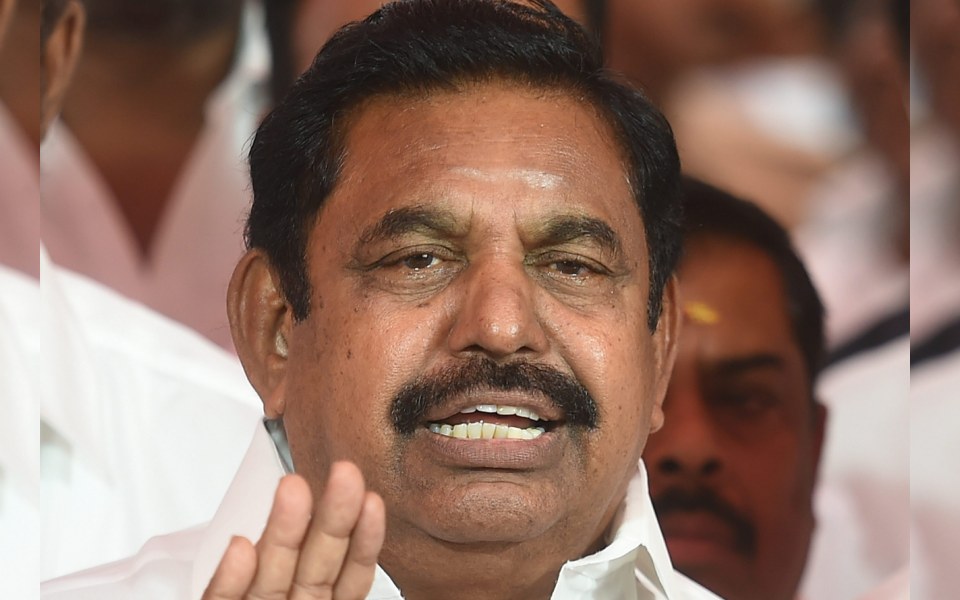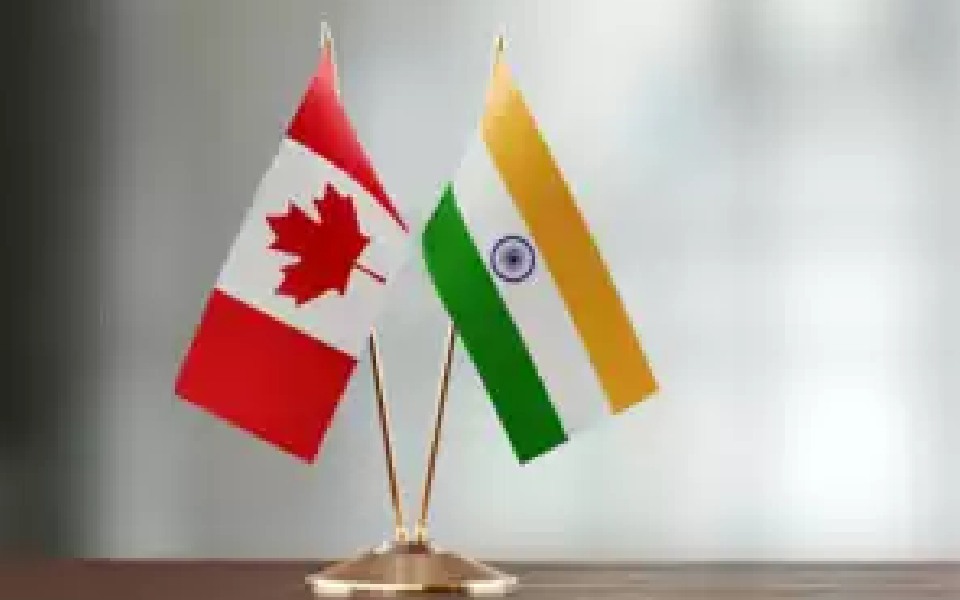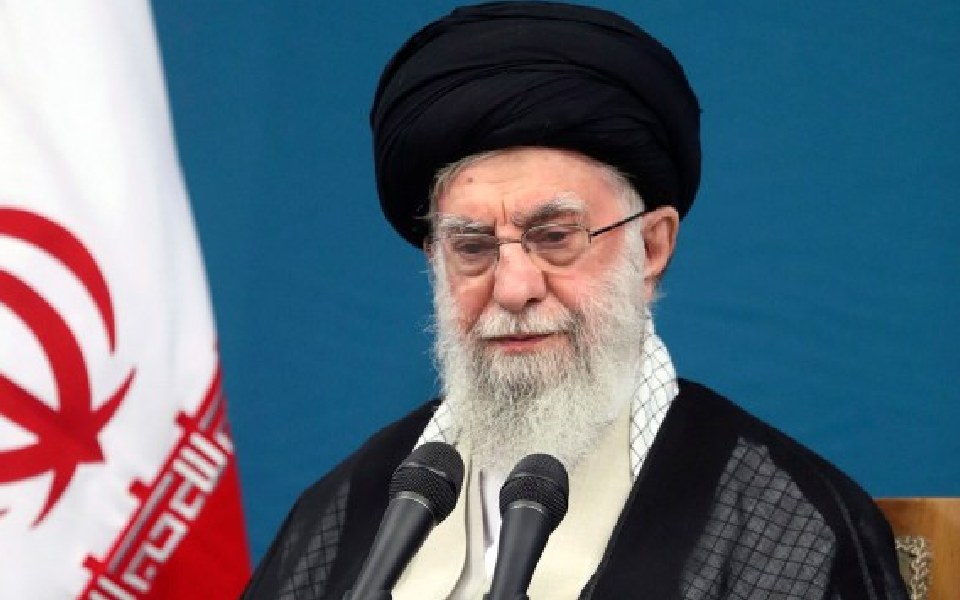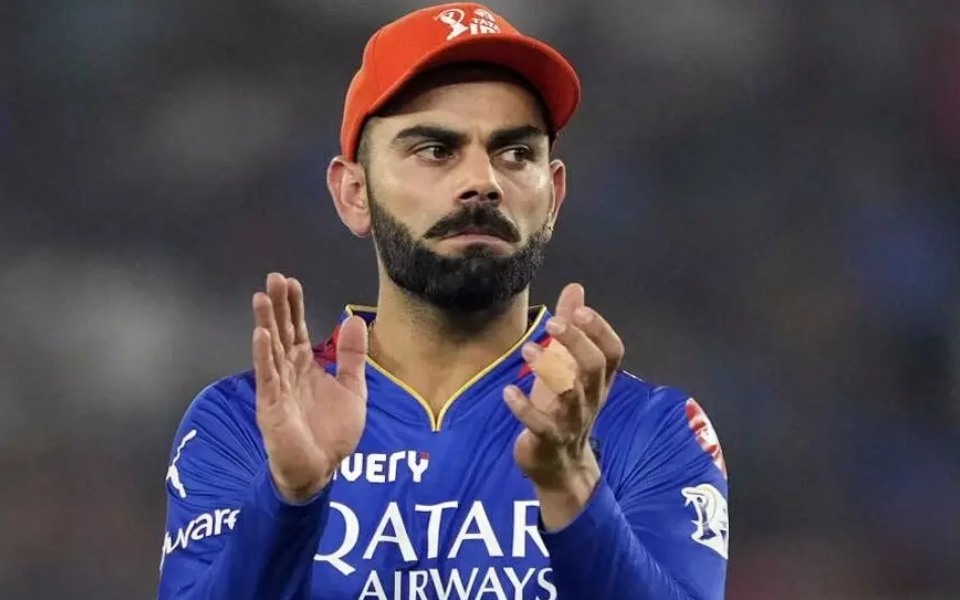Chennai, Jul 5: BJP's southern ally AIADMK on Wednesday reiterated its stand against the implementation of the Uniform Civil Code.
AIADMK chief K Palaniswami, when asked by reporters on BJP's push for Uniform Civil Code and his party's stand, said the position had already been made known in the party's manifesto released for the 2019 Lok Sabha polls.
"Read our manifesto, we have mentioned it clearly," he told reporters after chairing a meeting of the party's district secretaries here.
In the manifesto, under the topic 'Secularism', the party had said in 2019: "The AIADMK will urge the Government of India to not bring any amendments to the Constitution for a Uniform Civil Code that will adversely affect the religious rights of minorities in India."
Asked if his party's alliance with the BJP would continue (for the 2024 Lok Sabha polls), Palaniswami said: "There is no election now. There is one year to go for the polls, there is no urgency. At the time of polls, for sure we will tell you with which parties we are aligning. Already, we have made known (the party's stand on alliance with BJP) about the BJP." At the appropriate time, everything would be spoken transparently, he said.
The alliance would be forged following the footsteps of party founder M G Ramachandran and late party matriarch J Jayalalithaa. "Our ties with the BJP has already been made clear," he reiterated.
In March and then in April this year after a meeting with BJP top leaders J P Nadda and Amit Shah in Delhi, Palaniswami had said his party's ties with the BJP remained intact.
In the AIADMK meet today, top leaders and the district secretaries deliberated the preparations for the party conference slated to be held in Madurai on August 20.
Palaniswami said in about a month and half, the party has enrolled as many as 1.60 crore members, which is historic and the party has not "broken" and it is "robust". There was no other party in Tamil Nadu which has so many members. All positions in the party would be filled, he added.
Taking a veiled swipe at expelled leader O Panneerselvam (OPS), Palaniswami, without naming OPS and his supporters dubbed them as DMK's "B team". The AIADMK stood for all the people transcending caste and religious lines and worked for the upliftment of the oppressed people and for protecting their rights.
On the Cauvery river issue, he asked why Chief Minister M K Stalin had not spoken to his Karnataka counterpart Siddaramaiah, top leader of DMK ally Congress, to ensure release of water to the state.
Stalin not looking into the matter is tantamount to rendering injustice to Tamil Nadu farmers and the state and betrayal as well. He lashed out at Karnataka Deputy Chief Minister D K Shivakumar over his comments on Cauvery-Mekedatu dam.
Days after the amputation of a toddler's hand at a government hospital, the AIADMK leader hit out at the DMK regime for "ruining" the health department in the past two years. The TN government has asserted repeatedly that there was no medical negligence and that the arm was removed only to save the child's life. Palaniswami blamed the DMK government, which captured power in 2021, as "inept".
He referred to the release of Minister Udhayanidhi Stalin starrer Tamil flick 'Mamannan', the coverage for it in the media and an "image being built" that the DMK had, through the cinema as well, worked for Dalit empowerment.
Palaniswami said the DMK has no locus standi to comment on the issue. "Are they protecting the rights of the oppressed people? AIADMK leader from the oppressed Dalit community P Dhanapal, when he was the Assembly Speaker (2016-21) was 'manhandled' in the Assembly by the DMK members and a no-confidence motion was brought against him," Palaniswami said.
He released a logo and a tagline 'Veera varalatrin ponvizha ezhuchi manadu,' for the mega Madurai conference. The catchphrase could be roughly translated as 'Golden juibilee resurgence conference of a valourous history.' The AIADMK, founded in 1972, completed 50 years of its political journey in 2022.
Let the Truth be known. If you read VB and like VB, please be a VB Supporter and Help us deliver the Truth to one and all.
Ottawa/New Delhi, Nov 2: Amid an ongoing diplomatic row, Canada has for the first time named India in a list of cyberthreat adversaries and suggested state-sponsored actors could be spying against it, an allegation that New Delhi slammed on Saturday terming it to be “another example” of Ottawa's strategy to “attack India.”
India is named fifth after China, Russia, Iran and North Korea in the National Cyber Threat Assessment 2025-2026 (NCTA 2025-2026) report.
“We assess that Indian state-sponsored cyber threat actors likely conduct cyber threat activity against Government of Canada networks for the purpose of espionage,” the report said.
India is also mentioned in the trend on 'Geopolitically inspired non-state actors are creating unpredictability' citing as example how a pro-India hacktivist group claimed to have defaced and conducted brief attack against Canadian websites after India was accused of involvement in the killing of a Canadian citizen.
The NCTA 2025-2026 that highlights the cyber threats facing individuals and organisations in Canada was released on October 30 by the Canadian Centre for Cyber Security (Cyber Centre), which is Canada’s technical authority on cyber security, and part of the Communications Security Establishment Canada (CSE). The assessment reports are released every two years.
While there was no mention of India in the National Cyber Threat Assessment reports of 2018, 2020 and 2023-24, the 2025-26 assessment mentions India – along with China, Russia, Iran and North Korea -- in the 'Cyber threat from state adversaries' section that introduces the state cyber threat ecosystem and discusses the cyber threats to Canada.
“India’s leadership almost certainly aspires to build a modernised cyber programme with domestic cyber capabilities. India very likely uses its cyber programme to advance its national security imperatives, including espionage, counter-terrorism, and the country’s efforts to promote its global status and counter narratives against India and the Indian government,” the assessment report said.
“We assess that India’s cyber programme likely leverages commercial cyber vendors to enhance its operations. We assess that Indian state-sponsored cyber threat actors likely conduct cyber threat activity against Government of Canada networks for the purpose of espionage,” it said further.
“We judge that official bilateral relations between Canada and India will very likely drive Indian state-sponsored cyber threat activity against Canada,” it claimed.
CSE and its partners in Canada and across the Five Eyes are attuned to the cyber threats to Canada from state and nonstate cyber threat actors and are tracking them as they evolve, the report said.
NCTA 2025-2026 provides the Canadian public with CSE’s current insights on the state and non-state cyber threat actors conducting malicious cyber threat activity against Canada and how we assess the cyber threat landscape will evolve in the next two years, it added.
Canada is confronting an expanding and more complex state cyber ecosystem, the report said, and talked about strategic adversaries, emerging cyber programmes and wider cyber ecosystem.
In the 'Emerging cyber programmes,' it said: “At the same time, countries that aspire to become new centres of power within the global system, such as India, are building cyber programmes that present varying levels of threat to Canada.”
“While emerging states focus their cyber efforts on domestic threats and regional rivals, they also use their cyber capabilities to track and surveil activists and dissidents living abroad,” it added.
The NCTA 2025-2026 also mentioned “Geopolitical conflicts and tensions are inspiring disruptive cyber threat activity from non-state groups, commonly referred to as hacktivists” and gave example of how geopolitically motivated hacktivists typically conduct attacks to gain attention, such as distributed denial-of-service (DDoS) attacks, website defacements, and data leaks from Russia and India.
“Diplomatic tensions are also inspiring hacktivist activity. After Canada accused India of involvement in the killing of a Canadian citizen, a pro-India hacktivist group claimed to have defaced and conducted brief DDoS attacks against websites in Canada, including the public-facing website of the Canadian Armed Forces,” the report said.
“This non-state ecosystem is dynamic and unpredictable,” it added.
The development comes as the bilateral relationship has gone south since Prime Minister Justin Trudeau said a year ago that Canada had credible evidence that agents of the Indian government were involved in the murder of Canadian Sikh activist Hardeep Singh Nijjar in British Columbia in June 2023, a charge dismissed as absurd by India.
Meanwhile, the Ministry of External Affairs (MEA) on trashed the report.
MEA spokesperson Randhir Jaiswal told reporters in New Delhi: “Another category, Canada has put India into. This categorisation is as per the cyber report that they have issued. It appears to be another example of a Canadian strategy to attack India.”
“As I mentioned earlier, their senior officials have openly confessed that they are seeking to manipulate global opinion against India, as on other occasions, imputations are made without any evidence,” Jaiswal added.
While rejecting India being bracketed in that category, the MEA spokesperson said the accusation being levelled against India is “absolutely not right.”
India has been maintaining that the main issue between the two countries is that of Canada giving space to pro-Khalistan elements operating from Canadian soil with impunity.
India last month expelled six Canadian diplomats and withdrawn its high commissioner Sanjay Verma and other “targeted” officials from Canada after strongly dismissing Ottawa's charges.





